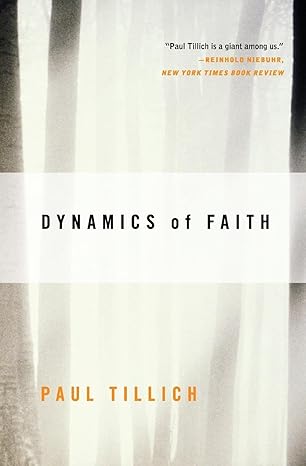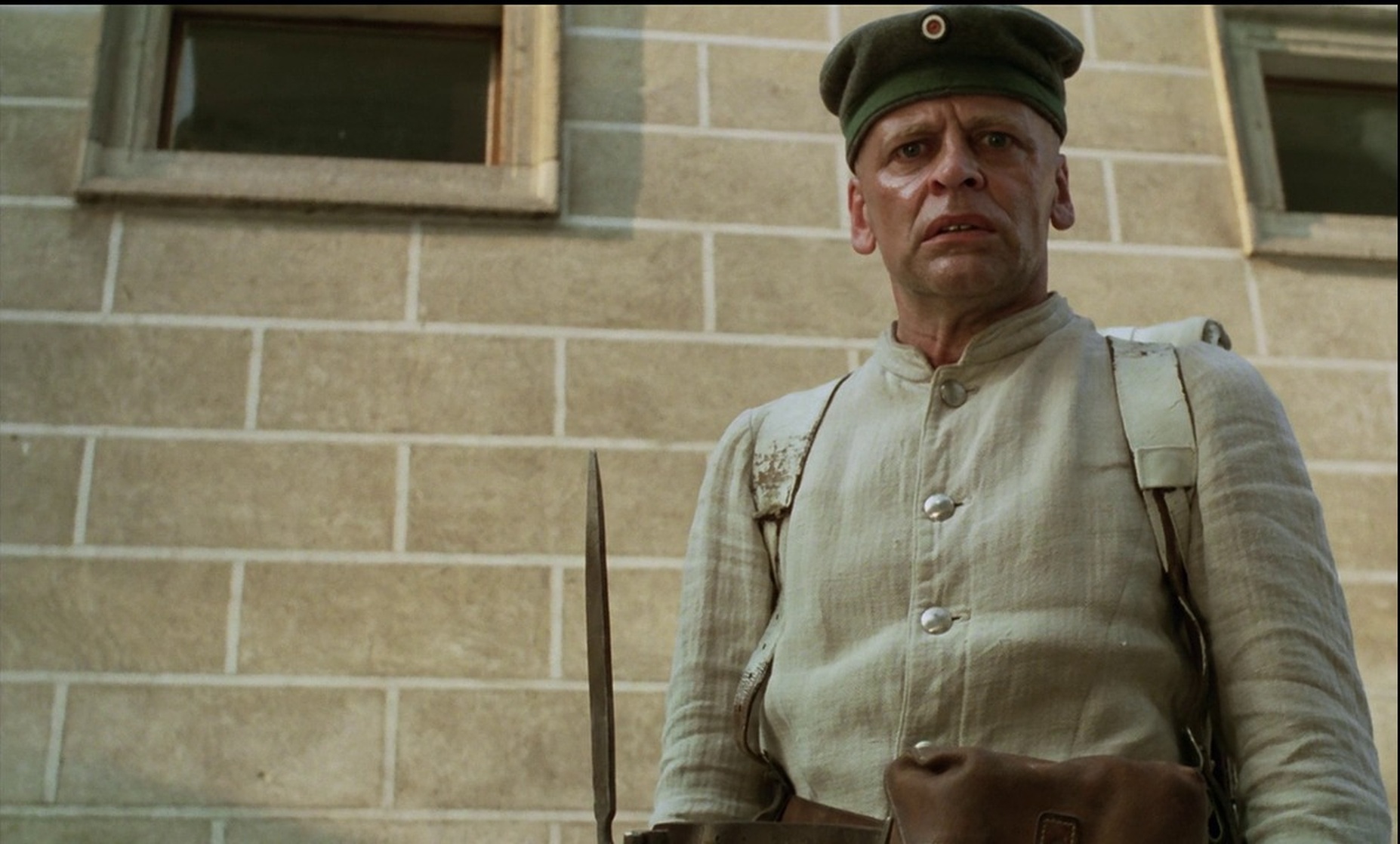- Mickey 17 (2025)

The music was fun, and I did chuckle occasionally. I like that it doesn’t take itself too seriously. You can also clearly see the influence of Trump on the villain, but it didn’t feel forced. The movie has many cool ideas that I haven’t seen used much in other films. 7/10.
Also cloning is a more convincing thought experiment then doubling like described in Derek Parfit Paper, though they did not do much with it.
- :(
- Dynamics of Faith by Paul Tillich

Dynamics of Faith is a book by the Christian Protestant theologian Paul Tillich. Heavily inspired by theologians like Rudolf Otto, he tries to give an account of faith as a response to the existentialists, who were all very critical of religion.
I think his account of faith as that which ultimately concerns us is very interesting and makes for a more fruitful philosophical term than faith as a low-probability belief, although I do think people tend to use the term more like the latter, and as Wittgenstein says, usage is meaning. I also think, surprisingly, that he has a lot in common with Nietzsche. In particular, the fusion of the Dionysian and Apollonian aspects in Nietzsche’s Birth of Tragedy has similar characteristics to what Tillich calls “what ultimately concerns us.” And Nietzsche’s criticism in The Antichrist, that Christianity makes the nothing holy, overlaps with Tillich’s definition of idolatrous faith, which is faith that tries to make the finite into the infinite. They only differ, in that aspect (Of course, Nietzsche has other problems with Christianity as well, such as his claim that Christianity goes against our nature.), in whether Christianity is itself idolatrous or not (to put it in Tillich’s terms).
I will try to write more on this later in a proper article. But I would recommend that book to anyone who struggles to accept religious “fairy tales,” while still thinking that there is something true about religion. It is, to some extent, a minimal metaphysical account of religion.
- Love and Faith
Different types of love have been distinguished, and the Greek eros type of love has been contrasted with the Christian agape type of love. Eros is described as the desire for self-fulfillment by the other being, agape as the will to self-surrender for the sake of the other being.
But this alternative does not exist. The so-called “types of love” are actually “qualities of love,” lying within each other and driven into conflict only in their distorted forms. No love is real without the unity of eros and agape. Agape without eros is obedience to a moral law—without warmth, without longing, without reunion. Eros without agape is chaotic desire, denying the validity of the claim of the other to be acknowledged as an independent self, able to love and to be loved.
Love as the unity of eros and agape is an implication of faith. […] The immediate expression of love is action.
Theologians have discussed the question of how faith can result in action. The answer is: because it implies love, and because the expression of love is action. The mediating link between faith and works is love. When the Reformers, who believed salvation to be dependent on faith alone, criticized the Roman Catholic doctrine that works are necessary for salvation, they were right in denying that any human action can produce reunion with God. Only God can reunite the estranged with himself. But the Reformers did not realize—and the Catholics were still only dimly aware of it—that love is an element of faith if faith is understood as ultimate concern. Faith implies love, love lives in works; in this sense faith is actual in work.
Where there is ultimate concern there is the passionate desire to actualize the content of one’s concern. “Concern,” in its very definition, includes the desire for action. […]
In the first case, the eros quality of love drives to union with the beloved in that which is beyond the lover and the beloved. In the second case, the agape quality of love drives to acceptance of the beloved and his transformation into what he potentially is. Mystical love unites by negation of the self. Ethical love transforms by affirmation of the self.
The sphere of activities following from mystical love is predominantly ascetic. The sphere of activities following from ethical love is predominantly formative. In both cases, faith determines the kind of love and the kind of action.
~ Paul Tillich, Dynamics of Faith, Chapter 6
- Woyzeck (1979)

Not your default Hollywood schlop. It also has one of the best cinema duos: Kinski with Werner Herzog, which is always a treat. The dialogue is very poetic. It almost feels more like a play than a movie, with the dialogue, the actors occasionally glancing into the camera, and so on. 7/10
The earth is hot as hell, I’m as cold as ice. Hell is hold. Fine day, Captain. Look at that nice, solid, grey sky. You could drive a peg and hang yourself. All because of a little question of yes, and then yes and no. Captain, did the no cause the yes or the yes the no?
Edit: I had a lot of unanswered questions about this movie. When you watch a film that tries to be more than mere entertainment, you need to constantly ask yourself why the author or director included each element. In works like this, nothing is accidental. I found myself wondering: What was the barber scene about? What was that thing that haunted our protagonist? What did the horse signify? And many other questions.
I have now read a compelling interpretation by Literariness that illuminates many of my questions. Here’s a short summary: the film revolves around two intertwined themes, nature and virtue, and how they relate.
In two key scenes, Woyzeck is accused of immorality. First, in the barber scene, his commanding officer tells him that wanting a child out of wedlock is immoral. Second, the doctor chastises him for urinating in the street. In both cases, Woyzeck’s response is similar: he attributes his actions to nature. In the first instance, he adds that if he were a gentleman like his commander, he would strive to be virtuous; in the second, he simply says it is in his nature. The doctor responds with
“What has Nature to do with it? Did I or did I not prove to you that the musculus constrictor vesicae is controlled by your will? Nature! Woyzeck, man is free! In Mankind alone we see glorified the individual’s will to freedom! And you couldn’t hold your water!”
Here, the film contrasts virtue as a societal expectation with the inevitability of human nature. Woyzeck, a poor and oppressed man, simply doesn’t have the luxury to consciously cultivate virtue; he is preoccupied with survival. Virtue, in this sense, is a luxury he cannot afford, and his “immoral” actions are framed as natural consequences.
Nature itself is also a recurring motif. One of the opening scenes shows Woyzeck in the forest with his companion, hearing noises and seeing strange things. This scene establishes two things:
- Woyzeck has mental instability.
- Nature, both the environment and Woyzeck’s perception of it, mirrors his inner state.
This idea intensifies in the horse scene:
“This is no dumb animal. This is a person! A human being! A human brute! But still an animal. A beast [The horse conducts itself indecently]. That’s right, put society to shame. As you can see, this animal is still in a state of nature. Not ideal nature, of course! Take a lesson from him! . . . What we have been told by this is: Man must be natural! You are created of dust, sand and dung. Why must you be more than dust, sand and dung? Look there, at his reason. He can figure even if he can’t count it off on his fingers. And why? Because he cannot express himself, can’t explain. A metamorphosed human being.”
Here, the horse represents Woyzeck’s essence: natural, instinctual, and unrefined. The other humans around him, shaped by society, behave according to rules, appearances, and learned “virtue,” but Woyzeck’s actions spring from instinct and necessity.
If I were to summarize the film’s message in one or two sentences:
- Virtue is a luxury that the poor, struggling to survive, cannot afford.
- Human nature is partly non-virtuous; immorality is not a moral failing but an inherent part of existence.
 I2P
I2P